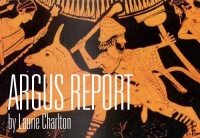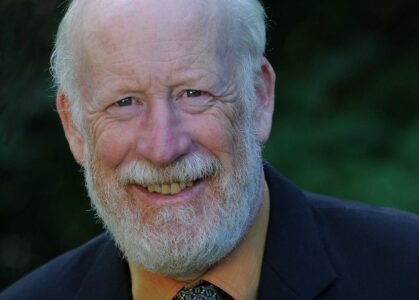What’s an 'AAP' anyways?
The City of Rossland has started another Alternative Approval Process (AAP) to obtain authority to borrow up to $4,000,000 for up to 30 years to pay for the City’s portion of the nearly completed Columbia Avenue infrastructure project. This AAP is accompanied by even fewer details than was provided with the first AAP in 2010/2011 for the Columbia-Washington project (as it was then).
The only material currently available to taxpayers to explain the process is some exceedingly confusing information posted on the City website and a brief official notice in the local press which barely meets the minimum legal requirements. No other explanations have been circulated to residents. Last time around the City at least issued a newsletter describing the process.
The original AAP for the Columbia Avenue project occurred over the Christmas Holidays. Not surprisingly, with the sparse information provided, and the time of the year, there was little response. It should be noted that the original Columbia/Washington AAP proposed borrowing $6,000,000 over 15 years. Why would we now borrow less money over a longer period of time? As will be recalled, that initial AAP was botched by City staff and was not approved by the Ministry of Community, Sport and Cultural Development (MCSCD).
This time the AAP is taking place during the summer when many people are out of town. Was this choice of timing done on purpose to minimize the potential for opposition? There is no need to rush the process as the City’s application for funding won’t be considered until next year.
In spite of claims to the contrary by CAO Cecille Arnott, the cost to the taxpayers of Rossland is more than was budgeted and, over the proposed 30 year time frame for the borrowing, could cost taxpayers about $1.9 million more in extra payments than borrowing the same amount for only 15 years based on current interest rates. The actual costs of the project are the subject of another column (see “What did Columbia Avenue really cost?”) this week.
In the AAP, electors are provided with an opportunity to tell council they may not proceed with the borrowing bylaw unless it is approved by assent of the electors. Assent of the electors is obtained through a referendum. Electors in Rossland may decide that borrowing $4,000,000 over 30 years is a waste of money and may wish to see the money borrowed over a shorter period to save the almost $1.9 million in extra payments currently indicated by the Municipal Finance Authority (MFA). That amount will certainly increase as interest rates rise from the extremely low current rates. According to information on the MFA website, interest rates are initially set for a term of 10 years. After that, rates are typically reset for 5 year periods at the then current rates.
In her memo to Council dated June 20, 2013, Ms, Arnott stated, in big capital letters, “if 10% of the electors sign the petition against Bylaw 2554, then the long term borrowing fails”. This is incorrect! The proposed long term borrowing only fails if a referendum on the bylaw fails. Ms. Arnott suggests that the only alternative, should the AAP fail, is to consider short term borrowing of only 5 years. This is also incorrect. Council has the ability to hold a referendum or consider borrowing for a shorter period such as 15 years. Why is our overpaid CAO giving misleading information to Council?
The misinformation provided by Ms. Arnott is compounded by the equally misleading public notice issued by the Corporate Officer, Tracey Butler, which implies that the AAP is an opportunity to respond against the bylaw. The petition is not for, or against, the bylaw. It is simply a request that the bylaw be submitted to referendum. If a referendum is requested by 10% of the electors (256 people as determined by the City), the City would have to provide more complete and accurate information about financing the project than has been provided to ensure that a majority of taxpayers would support the borrowing. The AAP is approved if less than 10% of the electors sign the petition calling for a referendum.
Even if the AAP is successful, the City will have to undertake temporary borrowing, with additional interest charges, because the City will likely not receive funding for the long-term borrowing from the MFA until 2014. The borrowing won’t be available until then because there is a lengthy process to be followed to get MFA approval.
Before the City can adopt a loan authorization bylaw, they must get assent from the electors, either by way of the AAP or by referendum. If approval of the electors is obtained, the City may adopt the bylaw. They must then wait at least one month to ensure there are no court challenges to the bylaw. The bylaw is then submitted to the MCSCD for a Certificate of Approval which allows the City to request the Regional District to prepare a Security Issuing Bylaw. Once the RDKB has approved their bylaw, it goes back to the MCSCD for another approval. The submission of the RDKB bylaw to the MCSCD has to be done by Aug. 16, 2013 in order for the City to be eligible for MFA borrowing in the late Fall of 2013.
Since the AAP won’t be completed until early September, the earliest the City can hope to obtain any MFA funding is April 2014. If the AAP had been started early in 2013 when the costs for the Columbia Avenue project were already known, the process could have been completed in time for the money to be borrowed this fall. Maybe, if our overpaid CAO hadn’t been off on holidays for the first two months of this year, the AAP would have been completed in time and the City wouldn’t be facing additional interest charges for the temporary borrowing required before long-term borrowing is secured.
For that matter, why wasn’t the process started last year when the tendered cost of the project was known? After all, our former CAO, Victor Kumar, insisted that the City had to undertake the original AAP in 2010 even though the potential costs were only a crude guess at best. Or was that simply more of the unrelenting balderdash that the majority of Council accepted from Mr. Kumar without question? Maybe the current AAP didn’t start in the fall of 2012 because our newly hired CAO was only working part-time.
Ms Arnott suggests that future taxpayers should share the cost of the current project. That is not unreasonable up to a point. Future taxpayers will be facing many additional costs as the City’s aging infrastructure continues to deteriorate and needs to be replaced. The $1.9 million in extra financing costs could be put to better use upgrading that infrastructure than increasing the profits of the large banks. If Council does proceed with borrowing over 30 years, our younger residents can look forward to many more years of high taxes. For those of us who are past our prime, it won’t matter – we won’t be around to pay those taxes.
Laurie Charlton is a retired chemist who was a Rossland city councillor for 17 years between 1975 and 2011.


























